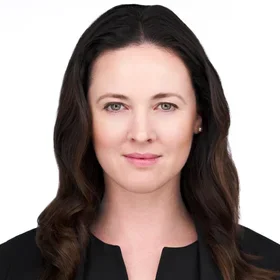“Sports played a significant role in my life growing up, both as an athlete and a fan,” says Destinee Coles, a lecturer and alumna of Columbia’s M.S. in Sports Management program.
After studying economics at UCLA and working for a year in private wealth management, Coles became curious about the business side of sports—how do these teams make money, and why are they so valuable? Eventually, she decided to combine her traditional career path in finance with something she was truly passionate about, and she enrolled in the Sports Management program as a way to transition into the sports world.
We recently spoke to Coles about her career pivot, how her time as a student informs her teaching, and the future of the sports industry.
Your Story
Tell us a bit about your current role in the NBA.
I work in the Team and Labor Finance Group at the National Basketball Association (NBA) league office. My role involves working closely with all 30 NBA teams on a full range of financial matters. Some of the key items include revenue sharing, salary cap, debt financing and cash flow management, ticketing, and arena construction and renovations. Working with the teams is my favorite aspect of the job; each franchise is unique, which keeps things interesting.
Your Curriculum
What course do you teach, and what are the main topics covered? What is a key lesson you hope students take away from your course?
I teach Sports Accounting and Finance. The course is focused on how leagues and teams earn money, spend money, and measure profitability and success. We cover a variety of topics, including major revenue streams, revenue sharing, salary caps, arena economics, return metrics, franchise valuations, and more. My goal is to help students develop a deeper understanding of the industry’s economics and what makes the business of sports unique. I hope students come out of the course feeling confident in applying the relevant concepts to their chosen careers.
What is the value of a master’s degree in Sports Management?
Attending the program accelerated my entry into sports. Because of Columbia’s network, I got the opportunity to join the NBA quickly after enrolling. This was thanks to many people in the Columbia community, including Bess Brodsky, my former career coach, and Brendan Perrin, a fellow alum and VP of finance at the Miami Heat.
Your Faculty
Does your previous experience as a student in the Sports Management program inform your approach to teaching?
Yes, I try to be cognizant of my experience as a student and bring that perspective to my course. I know that many students taking the course will not necessarily end up working in finance, so I try to provide a strong knowledge base of finance and accounting while keeping it interesting with relevant topics from the industry.
Your City
What do you think makes the Sports Management program unique?
The location in New York City, the epicenter of sports in the U.S., helps differentiate the program. The headquarters of all major American sports leagues are in the city, along with numerous franchises across leagues and related businesses. It’s the largest media market in the U.S. When international leagues or teams look to enter the U.S. market, they typically establish a presence in New York first. The pool of expertise that you can recruit faculty from is impressive. The market also provides a lot of opportunities for students looking to enter sports or transition careers. Being part of Columbia and the Ivy League further enhances the appeal of the program.
What challenges or advancements do you think the sports industry will encounter in the future?
I always tell my students that the sports media landscape is a key area to watch. Declining cable subscriptions, shifts to streaming or over-the-air TV, and regional sports network bankruptcies and exits have driven major disruption. That sector is ripe for innovation.
I’m also interested in arena and stadium trends as teams continue to evolve the fan experience while also prioritizing the revenue opportunities afforded by the surrounding real estate developments. Each new major venue or extensive renovation raises the standard.
What’s one thing people would be surprised to know about the sports industry?
I think people would be surprised by the true economics of many teams worldwide. Sports is a healthy industry, but that does not necessarily translate to each team’s bottom line for a variety of reasons.
Your Columbia
What is your advice to students?
Enjoy your time in the program, because it goes by quickly. Try to learn from professors, guest speakers, and classmates as much as possible.
Make sure you prioritize building solid relationships with your peers. For me, the network that the program provided was invaluable, and that was not limited to lecturers or alumni. My classmates have been so important in helping me manage my career. It’s great to see all they’ve accomplished throughout the world since our time at Columbia, and I love it when our paths cross in the industry.
About the Program
The Columbia University M.S. in Sports Management program provides students with a comprehensive curriculum and access to sports industry practitioners and influencers. Students acquire skills in areas such as entrepreneurship and innovation, global sports management, facility and event management, and sports law and ethics.


